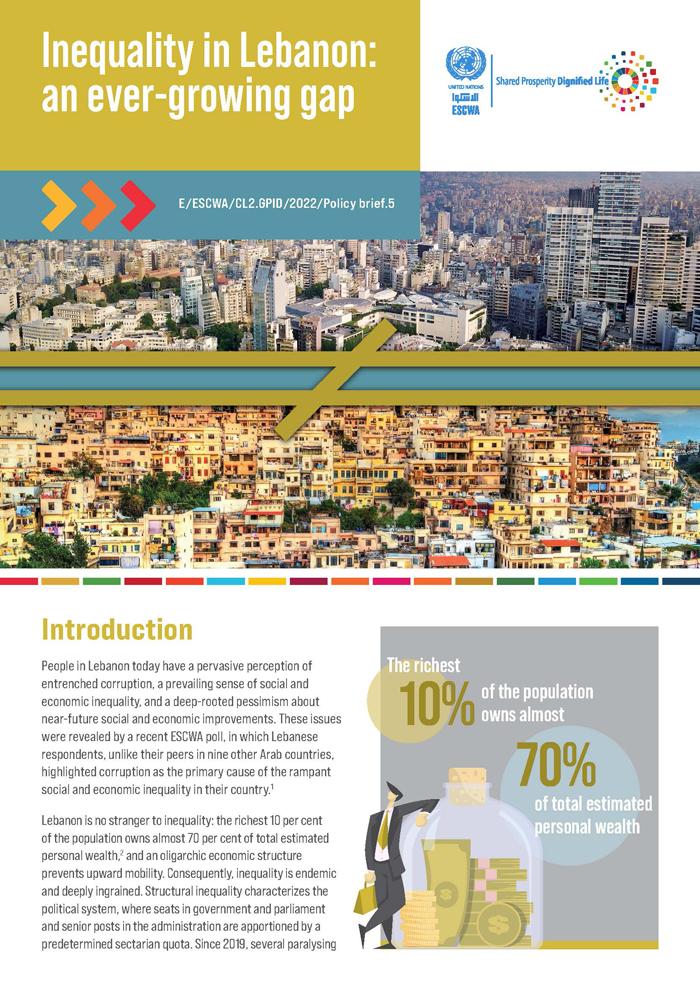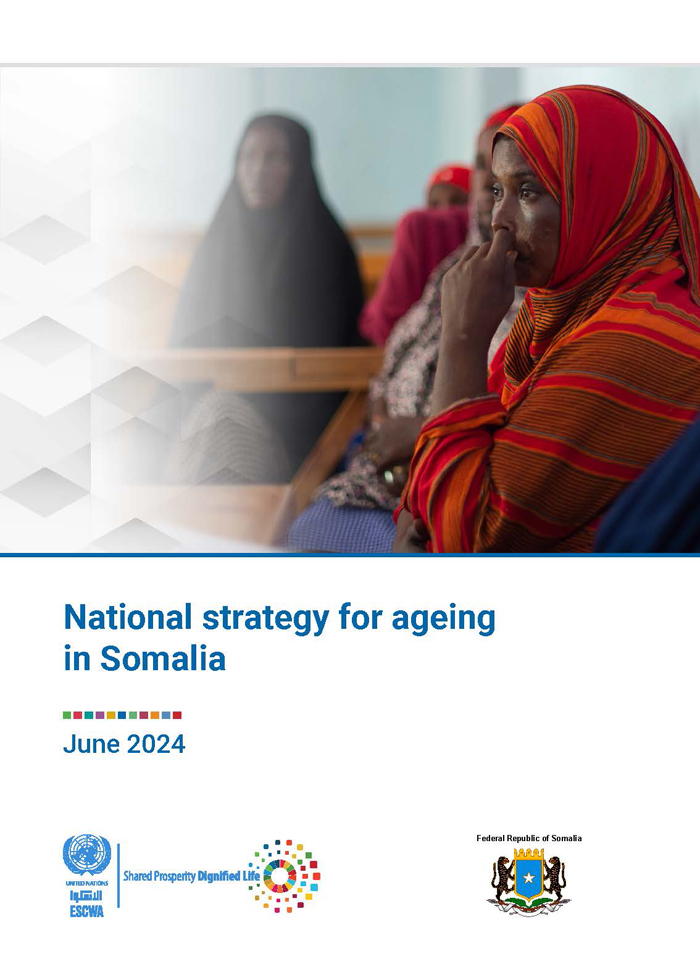
ESCWA Publication: E/ESCWA/CL2.GPID/2022/POLICY BRIEF.5
Country: Lebanese Republic
Publication Type: Policy briefs
Cluster: Gender Justice, Population and Inclusive Development
Focus Area: Debt and fiscal policy, Governance & enabling environment, Inclusive development, Future of employment, Macroeconomics
Initiatives: Reforming social protection systems, Governance and institution building, Addressing multidimensional poverty, Public finance and inclusive fiscal policy, Reducing inequalities
SDGs: Goal 8: Decent Work and Economic Growth, Goal 16: Peace, Justice and Strong Institutions
Keywords: Lebanon, Governance, Debt, Fiscal policy, Development, Employment, Poverty, Corruption, Currency, Technical cooperation, Income distribution, Economic conditions, Social conditions
Inequality in Lebanon: an ever-growing gap
September 2022
People in Lebanon today have a pervasive perception of entrenched corruption, a prevailing sense of social and economic inequality, and a deep-rooted pessimism about near-future social and economic improvements. These issues were revealed by a recent ESCWA poll, in which Lebanese respondents, unlike their peers in nine other Arab countries, highlighted corruption as the primary cause of the rampant social and economic inequality in their country.
The succession of events over the past three years in Lebanon has deepened existing inequalities, and precipitated the pauperization of several vulnerable groups, especially in marginalized areas.
Related content
Debt and fiscal policy
, Governance & enabling environment
, Inclusive development
, Future of employment
, Macroeconomics
,
People in Lebanon today have a pervasive perception of entrenched corruption, a prevailing sense of social and economic inequality, and a deep-rooted pessimism about near-future social and economic improvements. These issues were revealed by a recent ESCWA poll, in which Lebanese respondents, unlike their peers in nine other Arab countries, highlighted corruption as the primary cause of the rampant social and economic inequality in their country.
The succession of events over the past three years in Lebanon has deepened existing inequalities, and precipitated the pauperization of several vulnerable groups, especially in marginalized areas.



